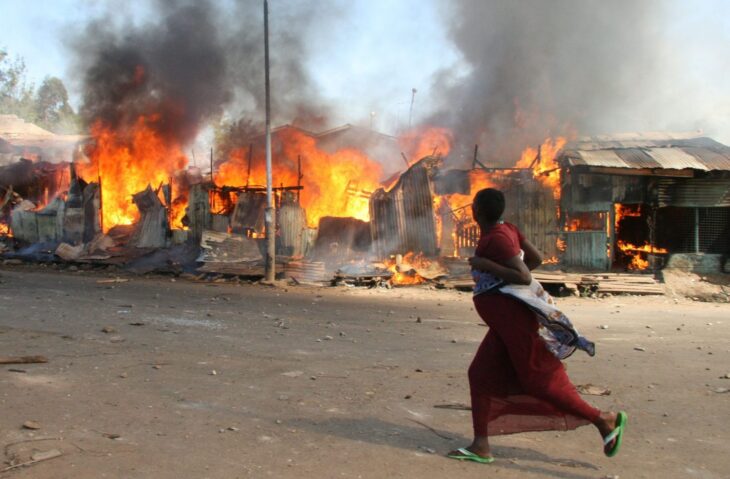NAIROBI, Kenya, Jun 22- Legal experts and human rights defenders have been challenged to work in a multi-agency approach while tackling cases of Sexual Gender-Based Violence (SGBV) during this electioneering period.
Legal experts say a multi-agency approach is critical during a situation like that of 2007-08 post-election violence, where the basic evidence collection mechanisms are not functional or feasible.
Kenya’s general election will be held on August 9, at a time when political tensions have risen, as top politicians seek to succeed President Uhuru Kenyatta, whose second and final term is coming to an end.
Gitonga Murang’a, a Human Rights Advocate says there is still potential for the country to slide back to the dark days of 2007 post-election violence (PEV) and thus the need for planning.
“If we are able to nip in the bud the escalation of violence or temperatures or even people addressing themselves in a hate speech manner, then we will be able to prevent it from spilling over to the situation we had in PEV. The election of violence of 2007 is largely blamed on hate speech,” he said.
More than 1,000 lives were lost during the 2007-2008 PEV and 600,000 people were internally displaced.
Within the weeks that followed the polls, thousands of civilians were victims of killings, forced displacements, destruction of property, and sexual and gender-based violence.
SGBV included rape, gang rape, forced circumcision, and partial or complete penile amputation, among other crimes.
While Kenya has experienced election-related violence since the introduction of multi-party politics in 1991, the scope and nature of the 2007-2008 PEV was unprecedented.
Murang’a said the ODPP has trained several prosecutors who are on standby, to deal with electoral offences including hate speech.
He was speaking during a Twitter Space hosted by the Crime Journalists Association of Kenya, in partnership with the Independent Medico-Legal Unit.
The weekly spaces are supported by the Canadian Embassy.
The ODPP has since launched several guidelines to help prosecutors and law enforcers on dealing with such vices.
He said stakeholders must ensure there are mechanisms in place for evidence collection in a case where violence is sporadic since, there is, “no time to collect the evidence or report to the police.”
Speaking during the Twitter Space, ICJ-Kenya Programme Officer, International Justice; Human Rights and Justice Programme Joan Mutonga stakeholders within the criminal justice sector to work in a more united approach and more so while tackling cases of Sexual Gender-Based Violence, and more so on data collection.
“In terms of coordination, there lies the problem which would stop us from having an effective response to these cases,” she said.
On December 10, 2020, the High Court of Kenya delivered a landmark judgement in favour of four female survivors of sexual and gender-based violence (SGBV) committed during the 2007-2008 post-election violence (PEV).
Following an almost eight-year-long procedure, the Court found that the Government of Kenya was responsible for failing to conduct independent and effective investigations and prosecutions of SGBV committed by state agents and awarded each survivor compensation of Sh4 million.
Until the High Court’s decision, there had been no such a recognition, at the highest level of the State, despite recurring demands from various actors.
Despite a progressive new constitution and strengthened institutions and laws developed to prevent and respond to sexual violence, Kenya’s National Commission on Human
Rights documented 201 cases reported to have occurred in 11 counties during the last general elections in that country in 2017.
Actual cases in all 47 counties are likely much higher according to experts.
What is known as ‘electoral-related sexual violence’ is a form of sexual violence, such as rape and sexual assault associated with electoral processes that are intended to influence a political outcome.
Even outside of election periods, Kenya suffers from high levels of sexual violence.
Some 45 percent of women and men aged 15-49 have experienced sexual and gender-based violence in the country.
NB: Additional reporting from contributors.
Want to send us a story? Contact Shahidi News Tel: +254115512797 (Mobile & WhatsApp)


